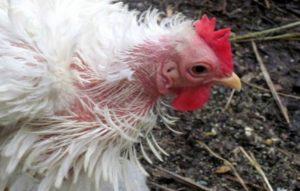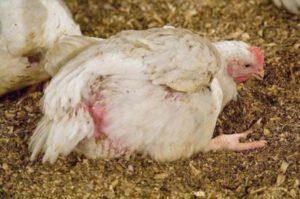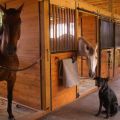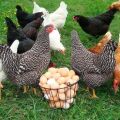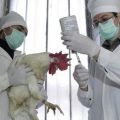What are the symptoms of sneezing chickens and how to treat at home
If chickens sneeze, you need to take action right away. The appearance of this symptom indicates the development of dangerous viral or bacterial pathologies. Also, violation of the conditions for keeping birds often leads to this violation. To avoid such problems, it is recommended to isolate the sick bird from the flock and find an effective treatment for it. Nutritional adjustments and changes in the rules of care are of no small importance.
Why chickens can wheeze and sneeze
If the birds get sick, they will most likely start wheezing and sneezing. These symptoms may indicate the development of a cold or other bronchial damage. It is strictly forbidden to ignore them, since there is a risk of losing the entire livestock.
Rhinotracheitis
This is a relatively new respiratory infection that is associated with swelling of the head and symptoms of airway involvement. Moreover, in chickens or adults, damage to the larynx, nasal cavity, trachea is observed.
The mucous membranes of the organ of vision also suffer. Lacrimation from the eyes is often observed. As a rule, chickens recover, but subsequently significantly lag behind in development.
Laryngotracheitis
The key symptom of the disease is the appearance of a scream in the throat during coughing. This is a viral herpes infection, which is accompanied by rhinitis and conjunctivitis. Pathology often remains active for up to 2 years.
Laryngotracheitis is characterized by 2 main forms - acute and hyperacute. In the first case, there is a risk of mortality for up to 15% of sick birds. Hyperacute leads to the death of 50-60% of birds. With this form of pathology, up to 80% of birds become infected on the first day.
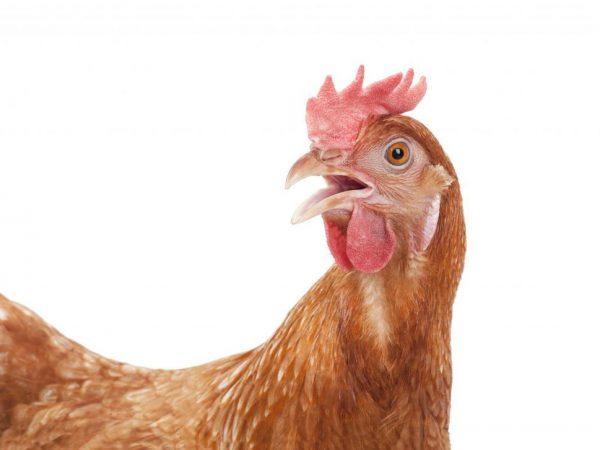
The main symptom of the disease is considered to be very heavy breathing. Then a cough appears. It is accompanied by bloody or other discharge. The mucous membranes can become covered with cheesy discharge, there are signs of suffocation, coughing.
Birds lose activity, their egg production decreases. Healthy birds can wheeze for a long time and suffer from conjunctivitis. With the development of an acute form of pathology, the spread of infection is possible up to 10 days. The main symptoms are cough, general weakness, wheezing. Cheesy discharge, swelling of the larynx, screeching in the throat are also possible.
Cold
This pathology is common in chickens. Birds, which are characterized by weakened immunity, are more susceptible to it. Hypothermia becomes the main cause of problems.With inflammatory lesions of the respiratory system, swelling of the mucous membranes is observed. As a result, the birds begin to pant, wheeze and sneeze.
After a certain time, mucous discharge from the nose and coughing occur. It is recommended to move a cold chicken away from healthy birds and choose a treatment. Untreated colds provoke complications.

Infectious form of bronchitis
If treatment for the common cold does not work, infectious bronchitis may be suspected. Its symptoms are similar to those of colds. At the same time, the bird breathes through its mouth, it has wheezing, sneezing, and a strong cough. There is also a violation of egg production.
Infectious bronchitis can spread at different rates. When the pathogen enters the lung tissue, it is almost impossible to avoid the death of chickens. The virus spreads through the air. It remains active within a 1 kilometer radius. Transmission takes 18-36 hours.
It is impossible to cure infectious bronchitis in chickens, therefore sick birds are isolated and the premises are disinfected.
Colibacillosis
Young animals aged 3-14 days suffer from this pathology. With the development of an acute form of the disease, the following manifestations occur:
- an increase in temperature by 1.5-2 degrees;
- intense thirst;
- loss of appetite and mass;
- general weakness;
- diarrhea.
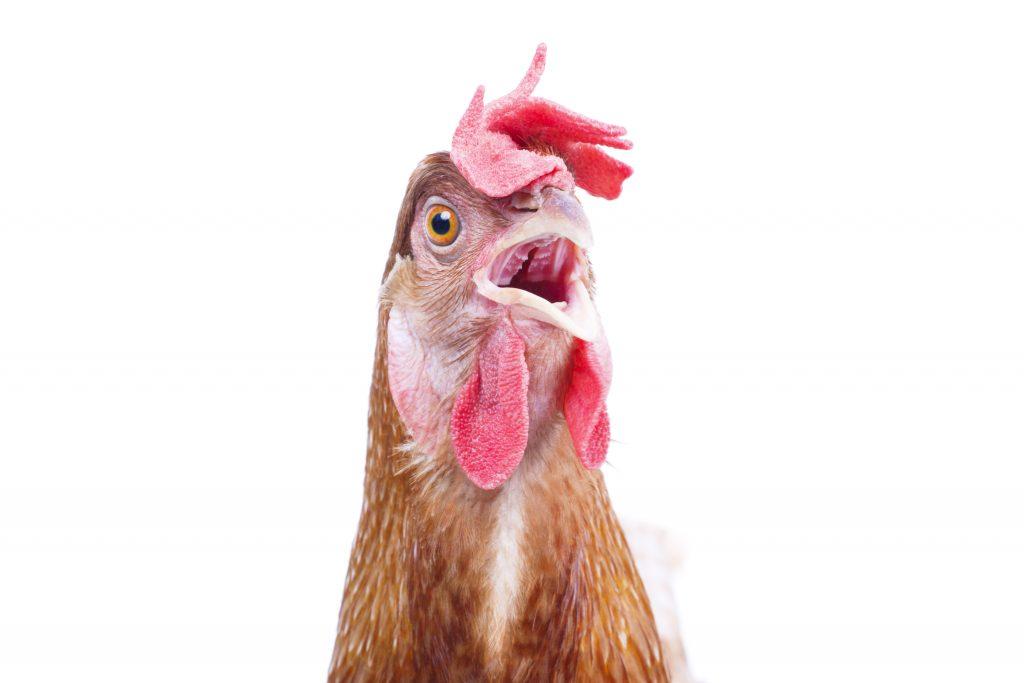
Death in an acute form of pathology occurs due to intoxication of the body. If the pathology is not cured, it becomes chronic. In this case, the following signs appear:
- pronounced thirst;
- decreased appetite and weight loss;
- heavy breathing, shortness of breath, sneezing, wheezing, coughing.
At the same time, screeching and crunching appear in the chest. The chronic form of the pathology is often fatal.
Respiratory mycoplasmosis
This infectious disease affects all livestock. In this case, the pathology spreads in such ways:
- through the water;
- when sneezing and coughing;
- from mother to chickens.
A viral infection can even infect eggs. Infection happens very quickly. For any suspicion of pathology, it is recommended to isolate the sick bird. In this case, her eggs are subject to destruction.
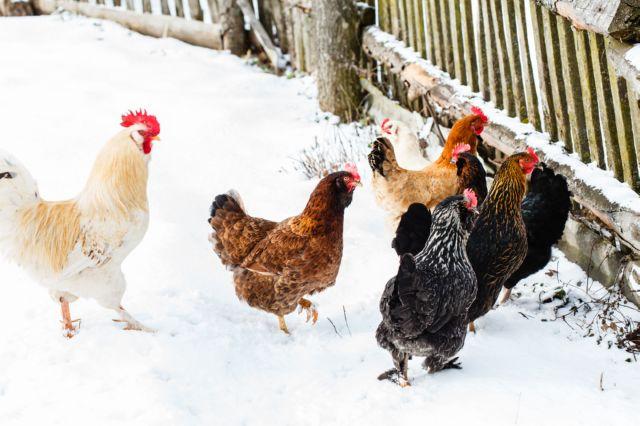
Typical symptoms include the following:
- heavy breathing through the mouth, wheezing and coughing, sneezing;
- diarrhea;
- deterioration in well-being.
In advanced cases, the bird becomes a source of infection. In the herd, the rooster is the first to suffer. Always, when suspicious symptoms appear, it is recommended to get tested immediately.
Bronchopneumonia
This is one of the most common consequences of an untreated cold. Chickens aged 2-3 weeks suffer from pathology to a greater extent. The risk of developing the disease increases with insufficient temperature in the house, exposure to drafts. Chickens can also suffer in the absence of protection from precipitation and cold wind.
Humid wheezing and rapid breathing are common symptoms of bronchopneumonia. At the same time, the birds constantly sneeze and lose activity. They sit a lot, do not move, do not eat or drink. Within 2 days, the weakest and youngest individuals die.
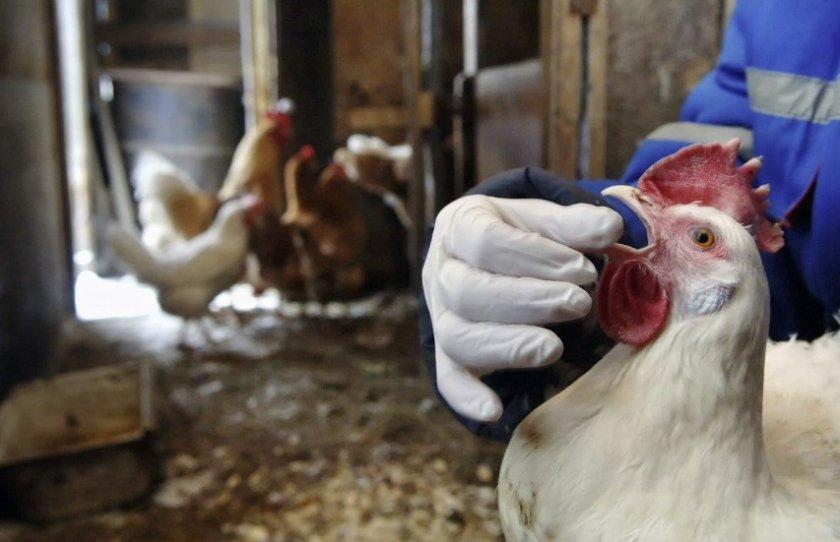
Tuberculosis
Sometimes sneezing is associated with the development of tuberculosis. When this pathology occurs, cough and diarrhea occur. Tuberculosis is not characterized by rapid development. Therefore, it is enough to simply get rid of the infected birds and disinfect the poultry house.
How to find out the reason?
To understand why a bird is sneezing and breathing heavily, it is worth analyzing the symptoms. It is the clinical picture that will help to make an accurate diagnosis.
The most harmless disease, due to which chickens cough and wheeze when breathing, is considered a cold. It develops due to hypothermia or drafts in the room.
Chickens die from colds if they are very weak or too old.The development of complications also becomes the cause of negative consequences. In other situations, colds are easily treated and do not cause negative consequences. If the chicken opens its beak when it breathes or is bubbling in its throat, additional symptoms should be analyzed. With lung pathologies, there is a risk of death of the bird within 1-2 days.
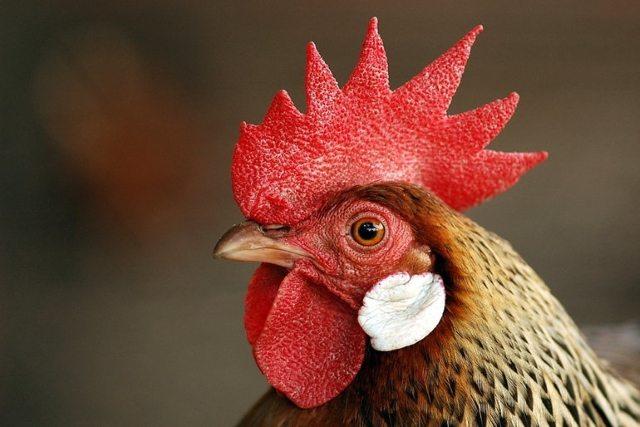
Dangerous signs include the following:
- hard breath;
- strong wheezing;
- open mouth;
- swelling of the mucous membranes;
- mucous discharge from the nose;
- cough;
- whistling when breathing;
- reduction or complete cessation of egg laying.
If such signs are detected, it is recommended to take immediate action. A sick chicken should be isolated immediately to stop the spread of infection. It is especially important to protect young or old birds, since they are at risk for the development of pathologies of the bronchi and lungs.

Basic rules of treatment
In order to avoid mass mortality of layers, it is recommended to make an accurate diagnosis in a timely manner and select an adequate treatment. With the development of a cold, broilers and other chickens should be treated with the following methods:
- Insulate chicken coops, protect the room from drafts and dampness. Temperature readings should not be less than +15 degrees.
- Young animals are recommended to be fed with nettle broth. You can also inhale with essential oils.
- When detecting infectious bronchitis, it is recommended to use disinfectants. These include Lugol's solution, aluminum iodide.
- If bronchopneumonia is found, it is worth checking the conditions for keeping birds. Most often, the problem is associated with hypothermia in birds. In this case, it will not be possible to do without antibiotics. Most often prescribed Spiramycin, Streptomycin, Erythromycin. It is recommended to give Tiamulin to youngsters.
- To restore egg production, it is recommended to use Tiposin. It is administered by injection. For 1 kilogram of body weight, it is recommended to use 3-5 milligrams of the drug.
- With the development of colibacillosis, antibiotics are recommended. In this case, it is worth using Biomycin, Terramycin, Syntomycin. The duration of therapy is 5 days. If necessary, it is permissible to reapply the funds. It should be borne in mind that when using antibacterial drugs, it is forbidden to eat chicken meat and eggs for 2 weeks.

Precautions
To prevent infestation of poultry, it is recommended to take precautions. First of all, the sick bird should be isolated.
To avoid general infection of the herd, it is recommended to follow these recommendations:
- instead of water, give the birds nettle broth;
- use vitamins and minerals;
- grind a streptocide tablet and use the resulting powder to dust the beaks.
The parameters of humidity and temperature in the hen house are of no small importance. It is also recommended to avoid drafts.
Effects
With timely detection, adequate care and effective treatment, diseases of the lungs and bronchi have a favorable prognosis. After 4-7 days, the bird can be completely cured. However, chicks may take longer to heal.

If the birds are not provided with adequate conditions, there is a risk of their death. The likelihood of death increases in conditions of high humidity, cold, draft. Also, problems are possible with an unbalanced diet and lack of adequate treatment.
Preventive measures
Frequent pathologies negatively affect the quality characteristics of eggs and meat. With adequate housekeeping, these problems can be avoided.
Conditions of detention
To avoid diseases, it is important to provide chickens with adequate housing conditions. It is recommended to follow these rules:
- keep birds in a properly built poultry house;
- give chickens high-quality and healthy food;
- timely clean the chicken coop;
- regularly add vitamins to food.
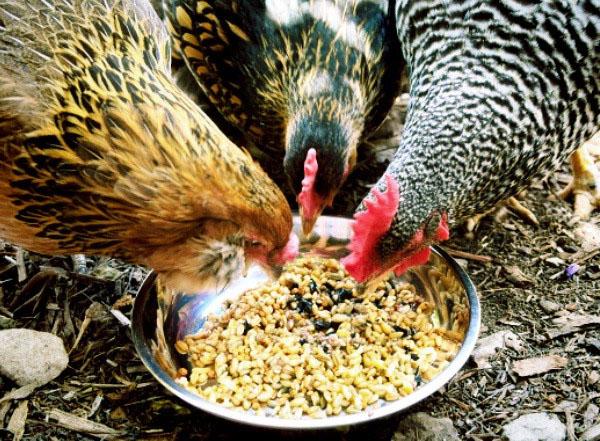
Periodically, birds should be examined for the presence of ulcerative defects and bald spots. It is also worth paying attention to the discharge from the beak. In addition, a change in feces becomes a sign of disease.
Drug prevention
To avoid problems, it is worth giving vitamins to chickens. They help to strengthen the bird's immune system. Medication can only be prescribed by a veterinarian.
People's prevention
As additional preventive measures, it is worth doing the following:
- ventilate the chicken coop;
- add calcium to food;
- insulate housing;
- carry out wet cleaning.
The sneezing of chickens can be due to various factors. To cope with this problem, it is worth making a correct diagnosis. In this case, it is necessary to pay attention to the clinical picture of the pathology.
